Our Lady in Tehran
Leaving an airport bathroom after a turbulent flight, a young Israeli woman sporting a messy hairdo, a pair of headphones, and a red-and-white Adidas jacket collides with a stylish flight attendant and says, “I know you . . . We were together in the army! What in the world are you doing here?!” The flight attendant stares at the woman for a second too long and then dons a pair of sunglasses and swiftly disappears. This seemingly typical encounter between an Israeli traveler and a reluctant acquaintance abroad is not typical at all, since it takes place in Imam Khomeini International Airport in Tehran.
What are these two Israeli women doing in a Tehrani airport bathroom? The frazzled backpacker, Shira (Tuti Ninio), is there because she scored cheap tickets on a Royal Jordanian flight to India, and the plane was forced to make an emergency landing after experiencing unexpected engine trouble. The flight attendant she bumps into is, in fact, an Israeli hacker and spy named Tamar Rabinyan (Niv Sultan, in her first major role), who flew in on the same flight and has just exchanged clothes and identities in a bathroom stall with Jila Ghorbanifar—a Persian woman who is working for a Tehran electric company, collaborating with the Israelis, and will soon be sitting in Tamar’s seat on the return flight to India. The Mossad has orchestrated this complex and brazen operation as part of a last-ditch effort to cut the capital’s power supply so that the Israeli Air Force can take out Iran’s nuclear program. And the Tehrani bathroom run-in is the first of a string of tactical misfortunes that burns Tamar’s cover and unleashes a high-octane drama powered by chic wardrobe changes, shifting identities, and an explosive premise: Tamar can make her way in Iran because she is, in some deep sense, herself Iranian.
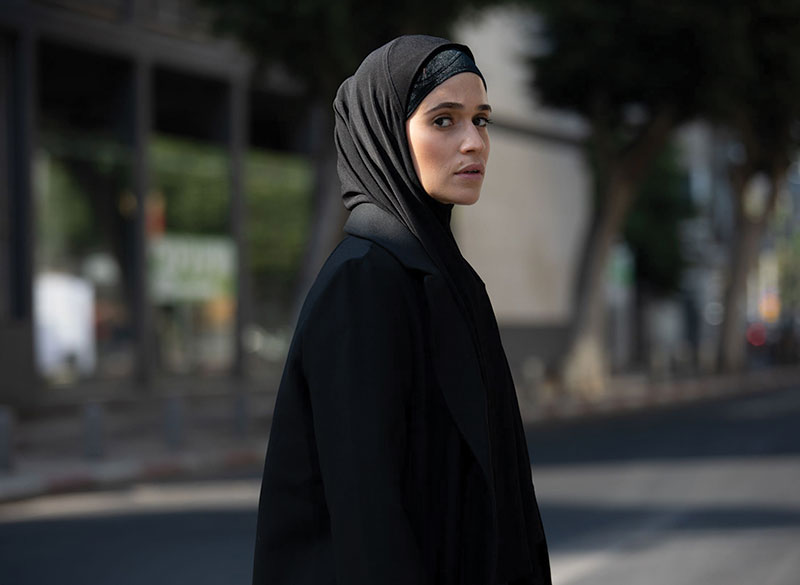
Much like past successes and failures of Israeli intelligence, Tehran’s action alternates between the utterly brilliant and the incredibly boneheaded. Watching the show, one thinks of Israel’s recent seizure, from a secret warehouse in Tehran, of an enormous archive of files documenting Iran’s nuclear activities. But one also recalls the assassination of Hamas’s Mahmoud al-Mabhouh in a Dubai hotel room, a mission in which passports and aliases were lifted from Israeli dual citizens and absurd disguises were donned by agents, with the entire debacle caught by security cameras.
Tehran was filmed in a much smaller country’s much smaller capital—Athens—in the hope that that city’s dusty streets and public parks might approximate the real thing. Many Israeli viewers were convinced, but Iranians—who, despite the official stance that Tehran was a work of Zionist propaganda, devoured leaked episodes with gusto—were understandably disappointed with geographic inaccuracies and the camera’s apparent apathy for the magic of their capital. Say what you will, Tehran is one of the most picturesque and visually interesting cities in the world. Its historic districts are checkered with concrete skyscrapers and squat neighborhoods, and it boasts busy green quarters and quiet, lush gardens, while the urban chaos is watched over by the spectacular Alborz mountain range. Of course, an Israeli production team could never dream of filming in Iran, but they were able to cast Iranians (expats, of course) to work alongside Israeli actors, and most of the dialogue is in Farsi.
The cinematography is prestige TV chic, on the whole impressive, though perhaps with one too many artsy close-ups. As for the quality of the acting, like real-world espionage, some performances are convincing and subtle, while others risk the whole enterprise by failing to rise to the occasion. The stars shine reliably bright: Shaun Toub and Navid Negahban—two Iranian American actors who worked together on the American thriller Homeland—bring grace and grit to their opposing roles as Iranian detective and Israeli spy handler. As Tamar, Niv Sultan’s beauty and youthfulness serve her well, although occasionally, her delivery is choppy, as is true of some of the supporting cast. And yet, despite it all, Tehran is an achievement of some cultural and political significance.
Certainly, from an industry perspective, Tehran is an event. The Canadian Cineflix bought its distribution rights well before it aired on the Israeli public broadcast station KAN this summer, and it will stream exclusively on Apple TV+ beginning September 25. No doubt, this is because the show’s cocreator and screenwriter, Moshe Zonder, is also the head writer of Fauda, the wildly successful series about an IDF unit of mista’arvim, counterterrorists who infiltrate the Palestinian territories disguised as Arabs. Fauda garnered critical acclaim in both Israel and America (where it streams on Netflix) for its high production values, action-packed plotlines, and multidimensional characters, including the Palestinian antagonists who, when not plotting the murder of Israeli civilians, are shown to be family men with romantic yearnings and chocolate cravings. Such humanization of “the other” has recently become something of a specialty of Israeli TV; it is one of the factors that led to the improbable success of Shtisel’s tale of ultra-Orthodox Jerusalemites.
Zonder turns a similar trick here. There is the story of Faraz Kamali (Toub), a high-ranking Iranian detective who is on Tamar’s trail from the moment her cover is blown in the airport bathroom. Sure, Kamali is a ruthless operator ready (like his Israeli counterparts) to kill anyone who gets in his way. But he also loves his cancer-stricken wife so deeply that he is willing to let down his (revolutionary) guard to tell her corny jokes, and more hazardously, to make decisions that secure her health and well-being, even if it means imperiling the homeland. Apart from Kamali and his leather-clad sidekick, Ali (Arash Marandi), Tehran gives us other well-drawn Iranian characters, including a group of young and restless radicals that Tamar ends up falling in with, joining their antiregime protests and Ecstasy-powered raves. She does this while falling in love with their ringleader, Milad (Shervin Alenabi, whose striking looks don’t always match his acting prowess), a fellow hacker who, without knowing that she is an Israeli agent, encourages Tamar to punish the regime by messing with the electric grid.
There is (fortunately) more to Zonder’s writing than nuanced profiles of terrorists and terrifying police officers. Indeed, the real heresy at the heart of Fauda was not its rounded characters but its split personalities. This is especially true of the show’s hero, Doron Kavillio (Lior Raz), an Israeli commando who must navigate his identity crisis as a Mizrahi Jew inside and outside the territories. Unlike most Jewish Israelis, Doron learned Arabic as a child from an Arabic-speaking Jewish father who maintained close friendships with local Palestinians. Through the intriguing back story of its heroine, Tehran similarly questions whether the boundaries of Middle Eastern politics always correspond to the psychological borders of its inhabitants.
Beyond the action-packed scenes played out in the situation room in Tel Aviv and the streets of Iran’s capital, Tehran gestures toward the lesser-known personal drama of those Iranian Jews who either chose to stay in Iran or, after immigrating to Israel, continued to pine away for their home country. The recent history of Iranian Jewry and its complex relationship with the State of Israel has confounded many observers, especially Israeli officials, who have struggled to understand why this community did not immigrate to Israel en masse in the 1950s, or at least after the Islamic Revolution, as other Jews living in Islamic lands did when the going got tough.
Unlike Jews from other Middle Eastern countries, Persian Jews have, to a significant extent, resisted the Israeli melting pot of Mizrahi identities. Recently, historians such as Lior Sternfeld have been retelling and rethinking the meaning of Iranian Jewry’s diasporic tale. I would not be surprised if Sternfeld’s Between Iran and Zion: Jewish Histories of Twentieth-Century Iran, or the works of some of his colleagues, found their way to the nightstands of Tehran’s writers. Consider the case of our own Tamar Rabinyan, who was born in Iran, moved to Israel as a child, and grew up in a Bat Yam apartment graced with a photograph of the striking Isfahan skyline, with its rounded domes, piercing minarets, and mountainous landscape. Unlike the majority of Iranian Jews who fled the country in the stormy days leading up to and following the Revolution, the Rabinyans remained for another 15 years. When they emigrated, they left close relatives behind. In a sense, they never really abandoned the country that they still regard as theirs.
An Isfahani Jewish folk saying, “One of my eyes is raised to Jerusalem and the other to Isfahan,” is uttered on more than one occasion on the show. Its pleasant symmetry conveys a balance of loyalties common to many Jews of the diaspora, including some Iranian Jews. Yet this was not the experience of Tamar’s father, Mordechai (Alex Naki), who tells Iranian intelligence officer Faraz how leaving Iran for the beloved Holy Land brought pain and heartbreak, and ironically, a sense of dislocation: “When I came to Jerusalem for the first time and saw the Holy Wall and the ramparts built by Muslims, I began to cry.” When pressed for the meaning of this strange reaction, Mordechai struggles to explain himself: “I am like an exile there. The longing for Iran only grows stronger from year to year.” Make no mistake, Mordechai harbors no love for the revolutionaries, telling Faraz that they have “long since lost their moral compass and destroyed our beautiful country.” He is also a devout Jew and wears the knitted yarmulke of religious Zionism. Yet even in his bitter accusation of the Islamic Revolution lies the alternate history of those Iranian Jews who despised the shah’s monarchic regime and, as Sternfeld’s book shows, initially supported the revolutionaries. The Islamists’ ensuing cruelties and corruptions were seen by many former opponents of the shah, including Jews, as a betrayal of the Iranian nation.
Tamar’s memories of Iran are hazy, but she finds fragments of herself there. When her cover is blown for a second time, and she is forced to make her way alone in Tehran, she seeks shelter with her aunt, who had been forced to cut ties with the Rabinyans when she married her college sweetheart, a Muslim, who is now an official in the Ministry of Justice. Yet Tamar’s relationship with the country she finds herself trapped in is not driven by family nostalgia; it is forward looking. This explains her gravitation to the sexy anarchists who want to take down the regime for the future of Iran. Her association with her partner in crime and maybe soul mate, Milad, is more than a honey trap.
Without giving too much away, the season ends on a precipice, with both Iranian and Israeli plans up in smoke. Clad in a chador, Tamar clings to Milad on a motorcycle that rushes past green hedges, city buses, and Jerusalem-like stone into the cool air of the Tehran night.
Suggested Reading
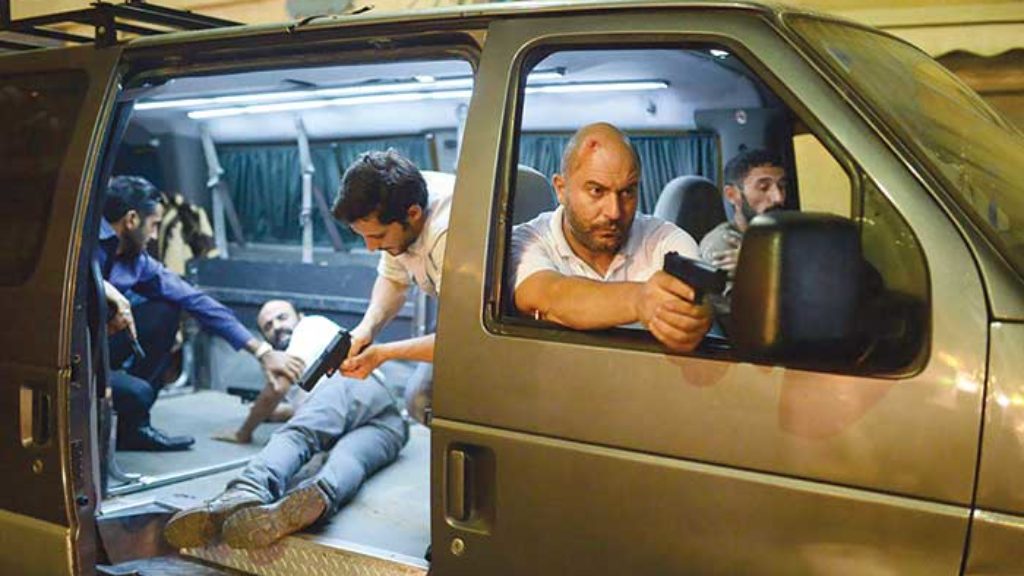
Fauda: The Wages of Chaos
Fauda, which takes its name from the Arabic word for chaos, opens in an adrenaline rush of noise, confusion, and jagged camerawork.
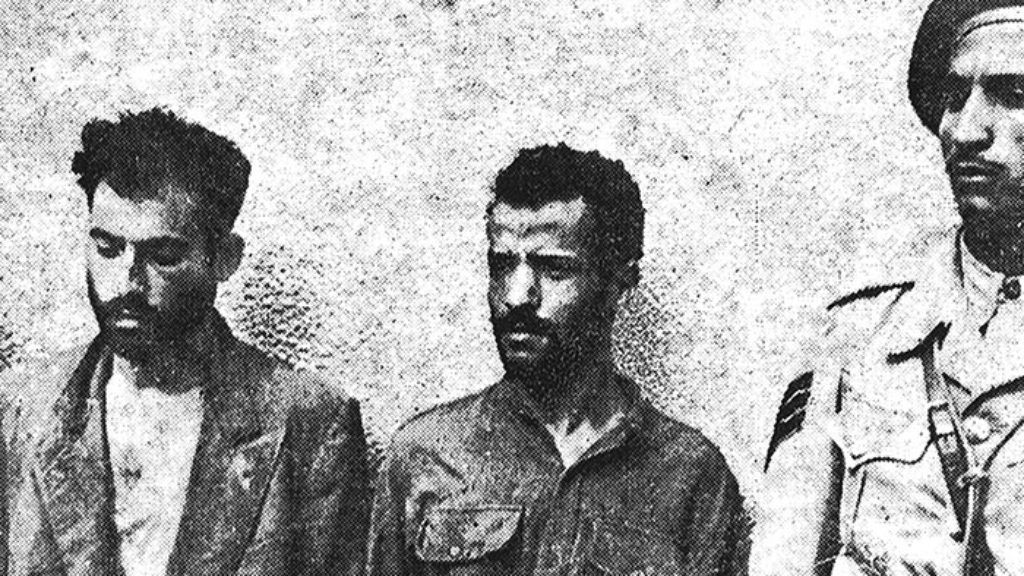
Our Man in Beirut
The Arab Section, suggests Matti Friedman, in one of his latest book's nicer lines, “needed men idealistic enough to risk their lives for free, but deceitful enough to make good spies.”
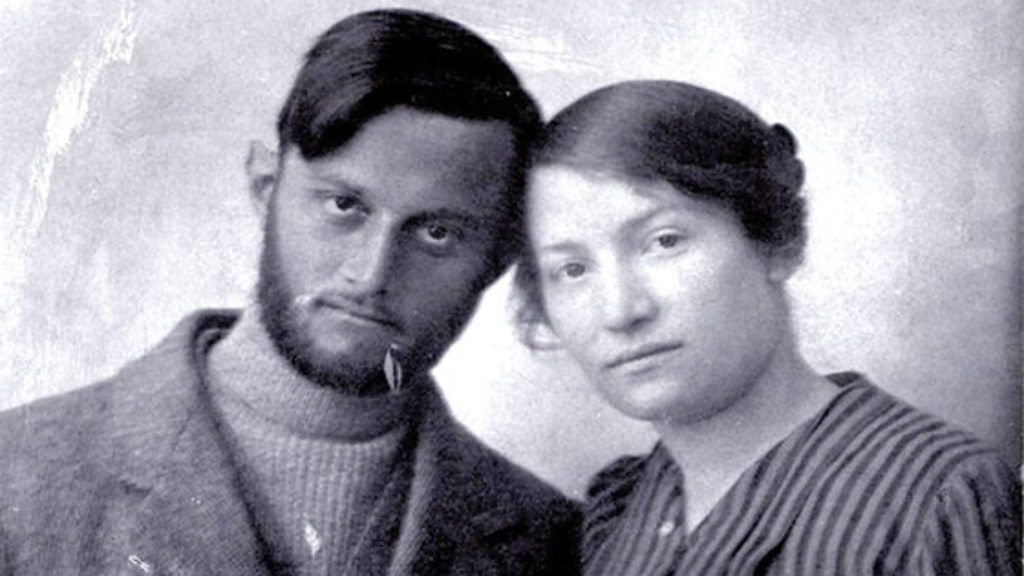
To Spy Out the Land
A palm tree over one grave and a fence around another—two new books explore the history and legacy of the Nili spy ring.
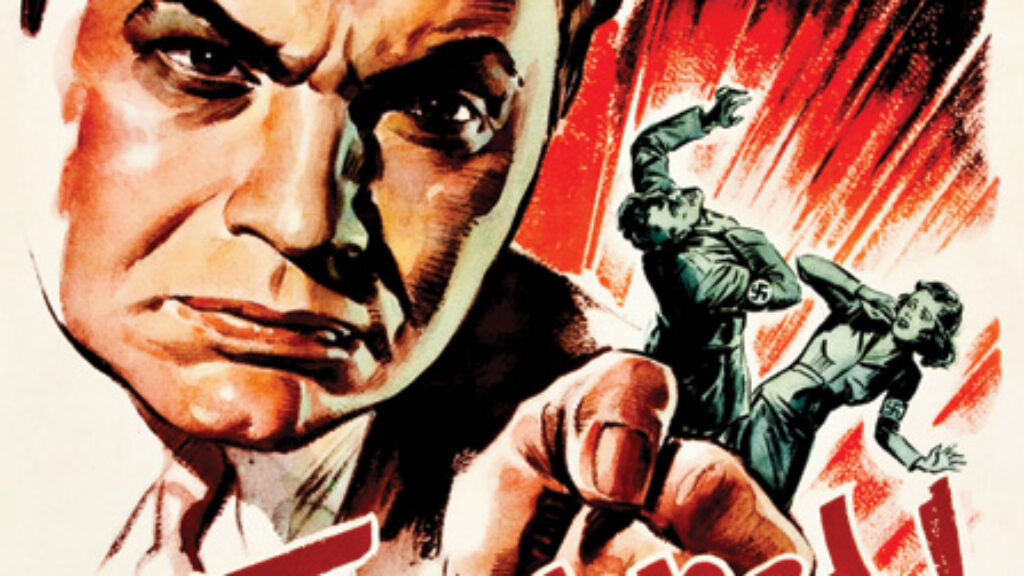
Hollywood’s Anti-Nazi Spies
In 1934, Hollywood's Jewish moguls met secretly at the Hillcrest Country Club to hear an unusual pitch: find Nazis in America, and stop them.
Comments
You must log in to comment Log In